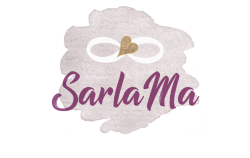The declaration continues and lists three reasons why this Union is a necessary step. First, the consequences of the civil war have destroyed many of the republics` economies and reconstruction, in a newly socialist way, is proving difficult without closer economic cooperation. Second, foreign threats continue to hover over the socialist camp and its sovereignty requires an alliance for defence. Finally, the ideological factor that Soviet domination is internationalist and pushes the working masses to unite within a single socialist family. These three factors justify the union in a single state that would guarantee prosperity, security and development. On 28 October 1989, the Ukrainian Parliament decreed that Ukrainian would be the official language of Ukraine effective 1 January 1990, while Russian would be used for communication between ethnic groups. On the same day, the Congregation of the Church of the Transfiguration of Lviv left the Russian Orthodox Church and proclaimed itself the Greek-Greek Ukrainian Church. The next day, thousands of people attended a memorial service in Demianiv Laz and a temporary marker was installed to signal that a monument to the „victims of the 1939-1941 repression“ would soon be erected. In January 1922, Georgi Schischerin, then The People`s Commissioner for Foreign Affairs, sent an official investigation to the Russian SFSR authorities on the possibility of representing the legal interests of other republics. Stalin believed that the Russian SFSR should represent other republics in the field of foreign policy (including at the Genoa conference in 1922), although there was no legal act granting him such powers. The first discussions between the authorities of some republics on the drafting of the treaty began in August 1922. [3] In March 1985, a long-time Communist Party politician, Mikhail Gorbachev, took over the USSR.
It inherited a stagnant economy and a political structure that made reforms almost impossible. On 13 November 1988, about 10,000 people attended an officially sanctioned meeting, organized by the spadschyna organisation, the Hromada Student Club of the University of Kiev and the environmental groups Zelenyi Svit („Green World“) and Noosfera to focus on ecological issues. From 14 to 18 November, 15 Ukrainian activists were among 100 human rights, national and religious rights defenders invited to discuss human rights with Soviet officials and a welcoming delegation from the US Commission for Security and Cooperation in Europe (also known as the Helsinki Commission). On 10 December, hundreds of people gathered in Kiev for International Human Rights Day at a rally organized by the Democratic Union. The unauthorized assembly led to the detention of local activists. [49] On 26 December, the Soviet Republics elected the upper house of the Supreme Soviet of the Union, the Soviet Union of existence[126][127] (the lower chamber, the Council of the Union, had been unable to work since 12 December, when the recall of Russian deputies left it without quorum).

Comments are closed.